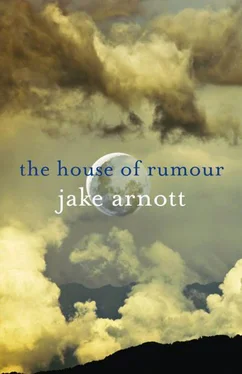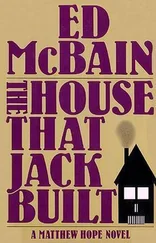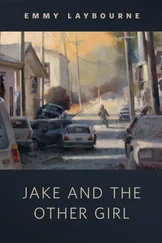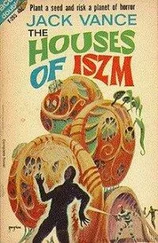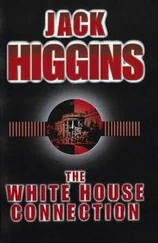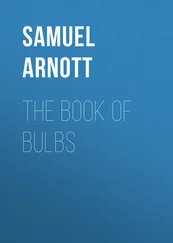‘To all the stories that will be written tomorrow.’
‘Then this is the Tomorrow Literary Society?’ asked Nemesio.
‘No, kid,’ Hubbard told him. ‘Mañana, no translation needed. As you know, the word has another meaning. A lot of these hacks aren’t as good as me at meeting deadlines.’
Nemesio frowned. Boucher tried to explain that English speakers used the word more to mean procrastination.
‘It’s a bit of a gringo thing, Ron,’ he added. ‘You know, this easy-going Latin, always putting off today what he can do tomorrow.’
‘Well, excuse me,’ Hubbard retorted. ‘You know, I once tried to explain “mañana”, in my own gringo way as you have it, to an Irishman. He told me that there was nothing in the Gaelic that conveyed the urgency of such a term!’
Hubbard paused for some sporadic laughter and then tried to continue to hold the room by launching into an improbable story of a recent expedition of his to Alaska. It was clear that he liked to dominate any assembly and to portray himself as an adventurer, a fearless explorer. He had written so much outlandish pulp fiction that he was already finding it hard to distinguish it from fact.
But he wasn’t allowed to get away with it for long. The imaginative competition was far too much for him. The conversation turned to the concept of parallel worlds and alternate futures, the notion of time being non-linear, the possibilities of precognition. The world was ripe for the speculative genre with all the uncertainties of war, the bewildering potential of new discoveries in science and technology. But amid all these great events I couldn’t help thinking that my personal life was on the brink of something, that this was a crucial night in my own history.
Heinlein began to hold forth on the curvature of space–time, of world-lines and points of divergence. Nemesio Carvajal intervened to speak of an Argentine writer who had just published a collection of stories. In one a character is described as attempting a novel that would describe a world where all possible outcomes of an event occur simultaneously with each one leading to further proliferation.
‘It is titled “El Jardín de senderos que se bifurcan” ,’ he explained.
‘The garden of paths that bisect?’ Boucher offered a swift translation.
‘Yes. You see, in the story there is a novel and a labyrinth. It turns out that the novel is the labyrinth and the labyrinth is the novel.’
‘Sounds interesting,’ Boucher continued. ‘What’s this writer called?’
‘Borges,’ Nemesio replied. It was the first time any of us had heard that name.
‘So what’s his genre?’ Hubbard demanded. ‘Mystery or fantasy, or what?’
‘Those things, yes,’ said Nemesio with a smile. ‘And more. He is also an important poet.’
Hubbard huffed indignantly.
‘We’re definitely at a place where the paths are diverging,’ said Cleve Cartmill.
‘But surely,’ Leigh Brackett interjected, ‘in the world, in our world, whatever that is, there will be one reality if totalitarianism goes on unchecked and another if it is defeated.’
‘Not necessarily,’ Heinlein argued. ‘It could be that different worlds can co-exist. In the past as well as the future. That’s why this kid’s story is so important,’ he nodded over at me. ‘ Lords of the Black Sun shows us the worst that will happen. By imagining it perhaps we can avoid it in our own reality.’
Feeling foolishly pleased with myself, I caught Mary-Lou’s eyes across the room. She smiled at me and in that moment I imagined our future together. Then Jack Parsons walked in.
There are many images that can attest to the dark and passionate features of the glamorous rocket scientist. Jack Parsons was undeniably photogenic so one can still appreciate those deep-set eyes, that quizzical mouth, the thick curls swept up into a crowning mane. But none of these portraits can ever do justice to his charisma, that delicately soulful presence one felt when he entered a room.
His voice was soft and slow, his manner hesitant. His gaze was open, searching. He looked romantically dishevelled in a fine flannel suit that needed pressing and an open-necked shirt naped with grime. There was a light sheen of sweat on his brow. With scant introduction and a gentle insistence, he joined in the conversation.
‘We’re certainly approaching a crucial moment,’ he said.
‘In your rocket experiments?’ asked Heinlein.
‘In that, yes,’ Parsons replied. ‘But in the Greater Work too.’
‘You mean this mystical stuff?’ Jack Williamson demanded.
‘Look, I know you think it’s all a bit far-fetched, but didn’t you say once that science is magic made real?’
‘I did, yes,’ Williamson conceded.
‘There must be any number of ways to break through the space–time continuum. We should experiment with them all. Soon there will be a chance to test some of this unseen wisdom. The Hierophant has ordered a special Mass that might just help change the course of the war.’
‘Wow,’ Mary-Lou murmured, her eyes wide and bright.
I realise now, of course, that he was talking about Aleister Crowley and that perhaps Jack had some knowledge of Operation Mistletoe. All I noticed then was the way Mary-Lou looked at him.
‘What’s a hierophant?’ asked Leigh Brackett.
‘It’s a fancy name for a high priest,’ Hubbard explained.
‘So, you’ve finally joined this Order,’ said Heinlein. ‘I hope you haven’t given up on the science.’
‘Oh no,’ Parsons replied with a smile. ‘I’m following both paths now.’
The fact that Jack Parsons was actually quite shy and nervous only seemed to add to his charm. He appeared to be channelling an enchantment from another dimension. And there was a reticence in how he described his experiments that was intriguing for all us fantasists. He had to be discreet, he explained. The US Military had become interested in missiles and jet propulsion, and was now funding the California Institute of Technology’s rocket group, which was testing secret prototypes out in the desert. He gave a vague account of the group’s activities that conjured visions of mystics raising fire demons in the wilderness. The desert as an empty stage beneath a theatre of stars, a limitless temple of research. He was equally obscure about this occult sect of his, the Ordo Templi Orientis. He was living a strange double life, one of wild asceticism and divine exhaustion, toiling beneath the harsh sun by day, enacting sacramental rites at the Agape Lodge of the OTO by night. He embodied a weird fusion of modern science and ancient wisdom, part hip technocrat, part Renaissance wizard.
He certainly cast some sort of spell over the room that night. It was an energy that seemed to split the discussion into waves and particles. No one voice could hold all the attention after that point. The party began to fracture and oscillate. Hubbard was in one corner detailing an improbable jungle adventure to Cleve Cartmill. Anthony Boucher was exchanging rapid Spanish with Nemesio. Heinlein and Williamson were circulating. Leslyn went into the kitchen for olives and more sherry. I had already noticed a buzz of attraction between Jack Parsons and Mary-Lou. I watched with dread as she slowly, inexorably, began to gravitate towards him.
They were in deep discussion about astronomy and astrology when Heinlein pulled me into his orbit. He announced that he was going up to his study to show Jack Willamson his ‘Timeline of Future History’ and insisted I join them. We went upstairs. Heinlein had on his wall a chart that mapped out a chronology of all the futuristic stories he had written and was planning to write. I stared at it blankly as Williamson made enthusiastic comments. When I think of it now I see the strange comment The Crazy Years — mass psychosis in the sixth decade next to the 1960s, but perhaps that’s because it was the one prediction Heinlein really did get right. At the time I’m sure I simply looked dumbfounded by the imagined course of the next two centuries as if searching for some clue as to what was going to happen that evening.
Читать дальше
